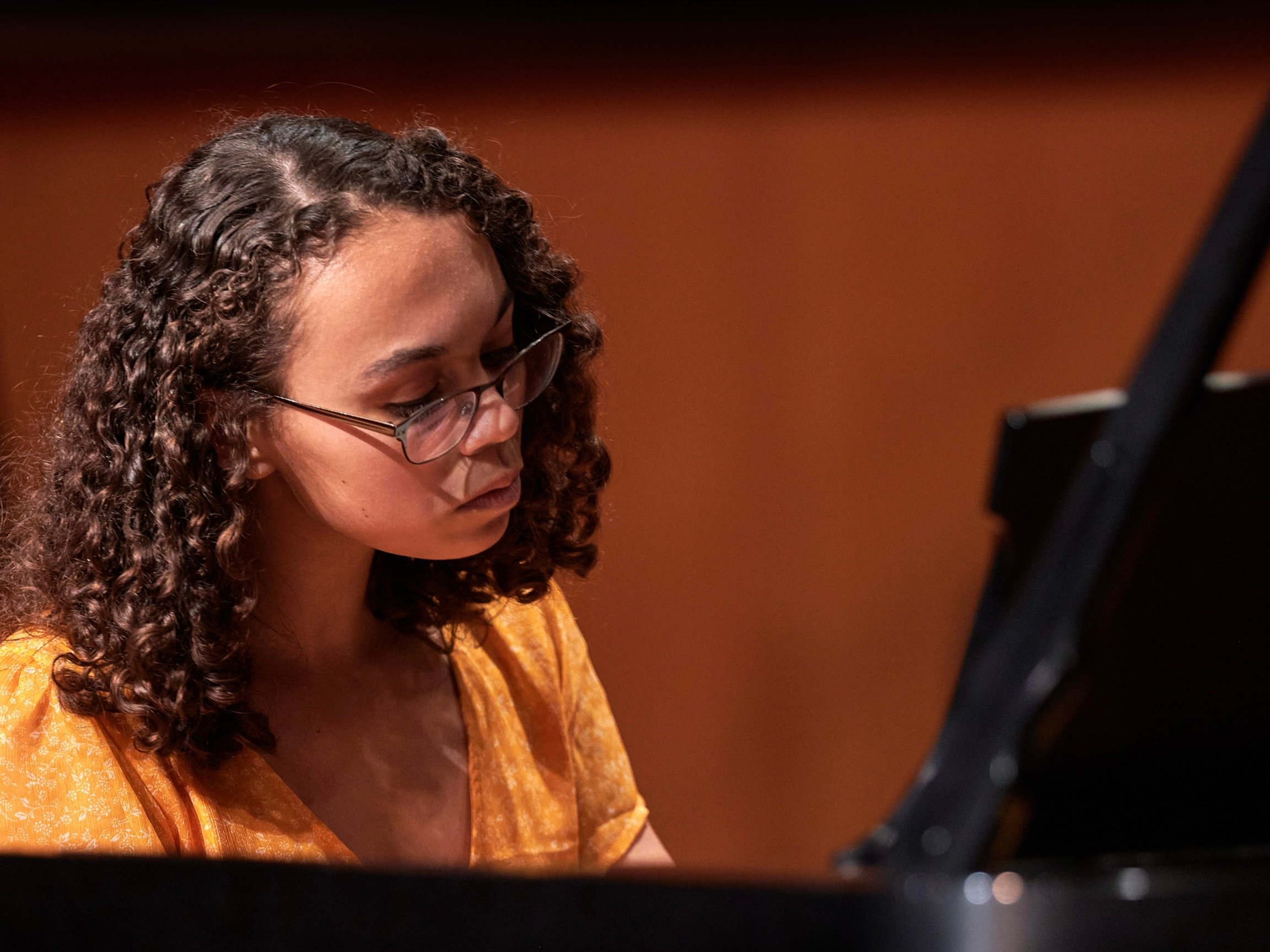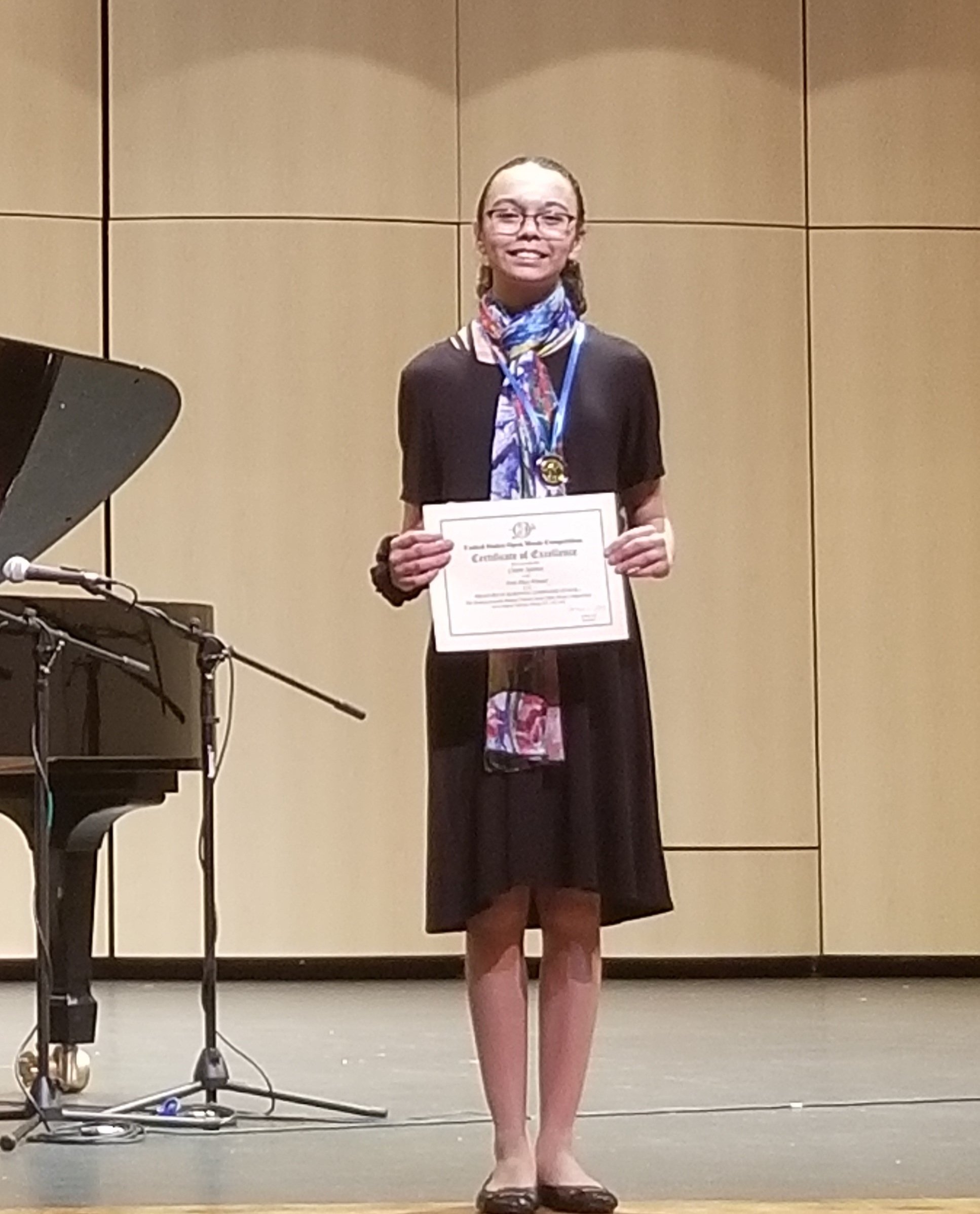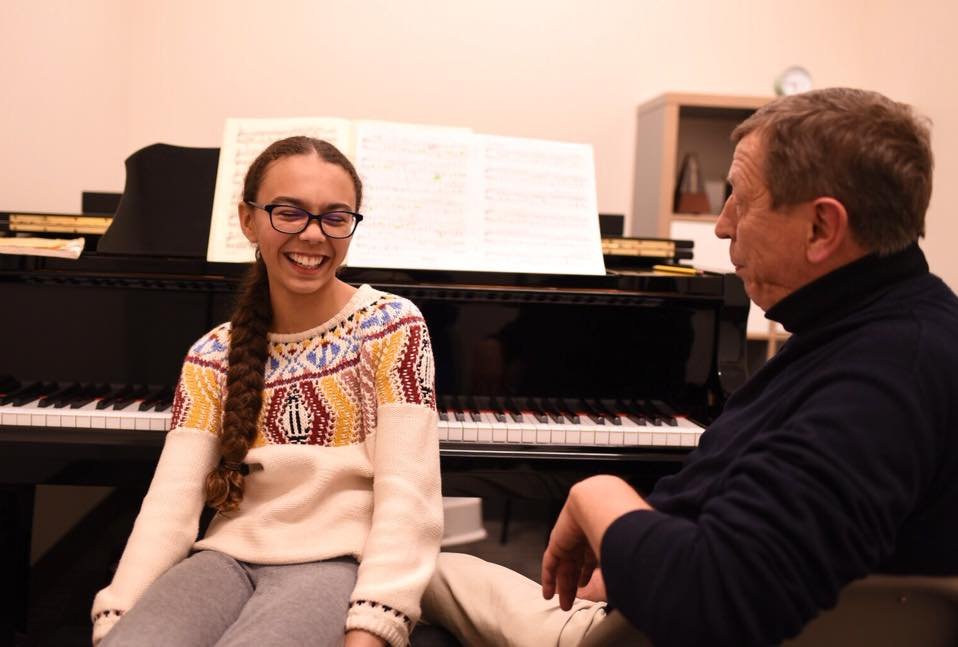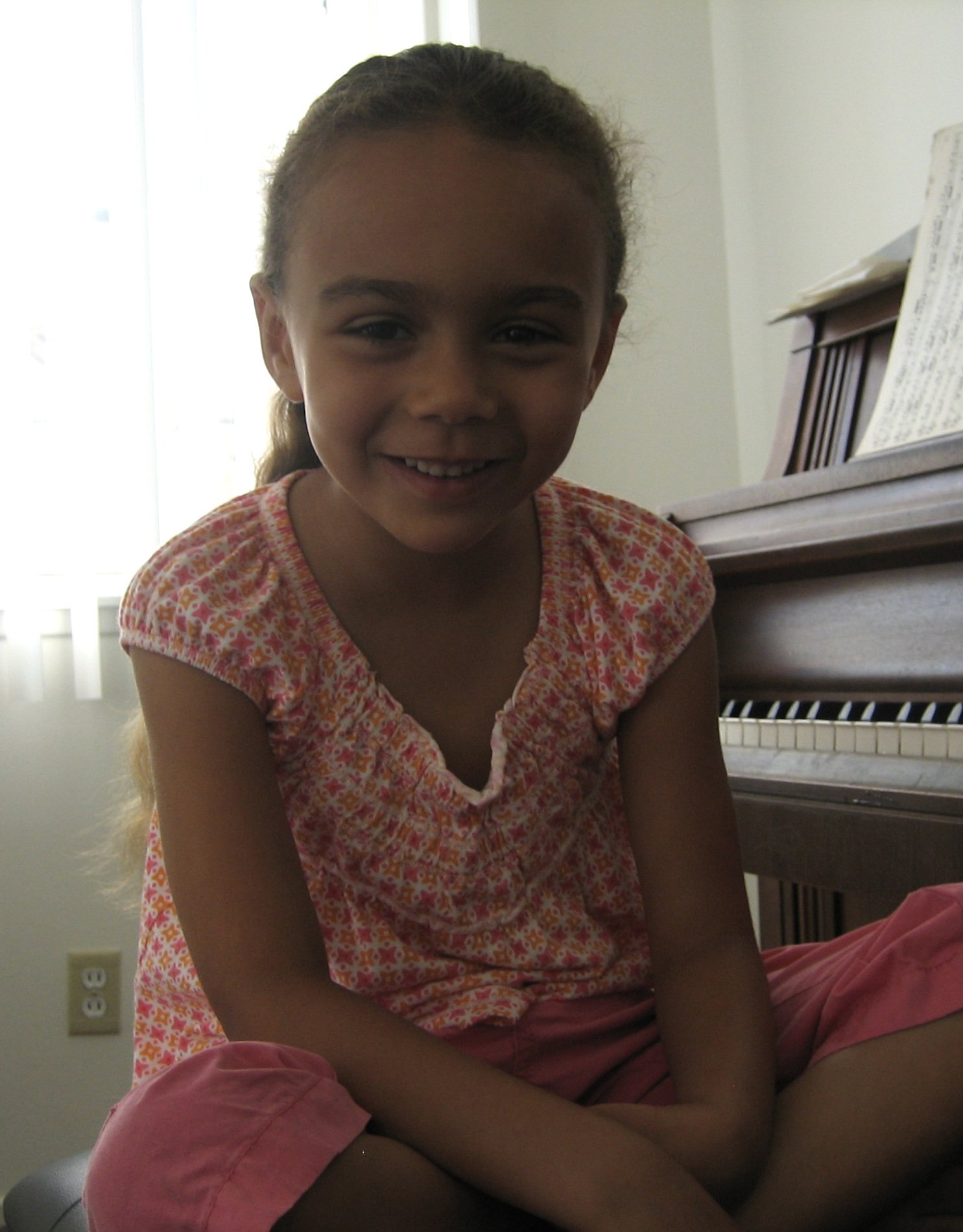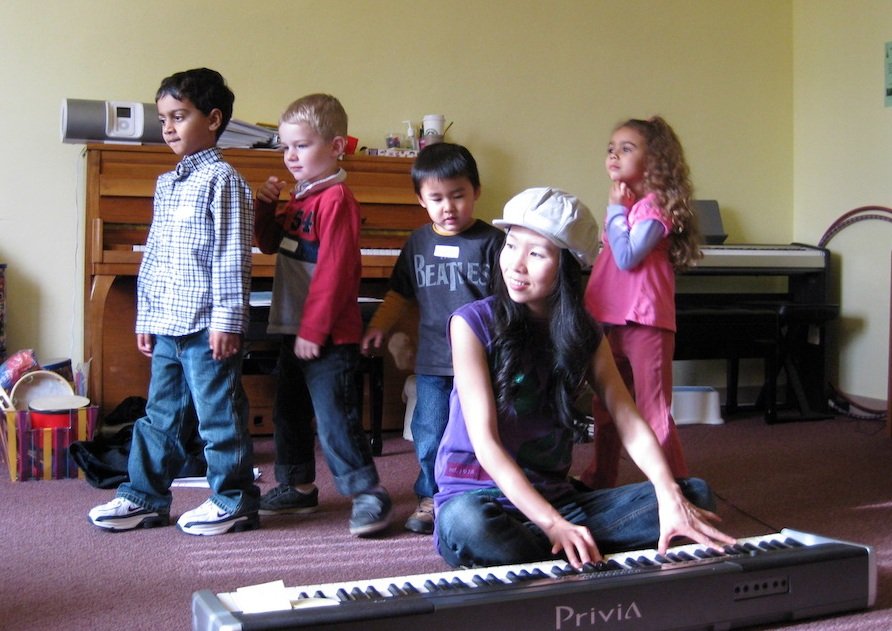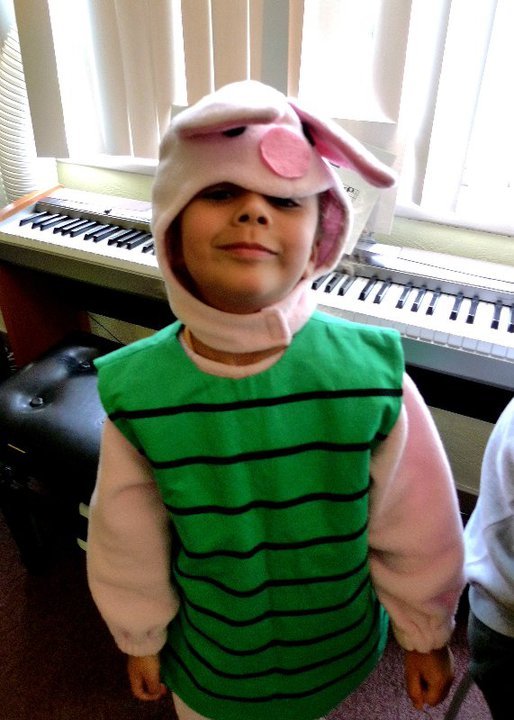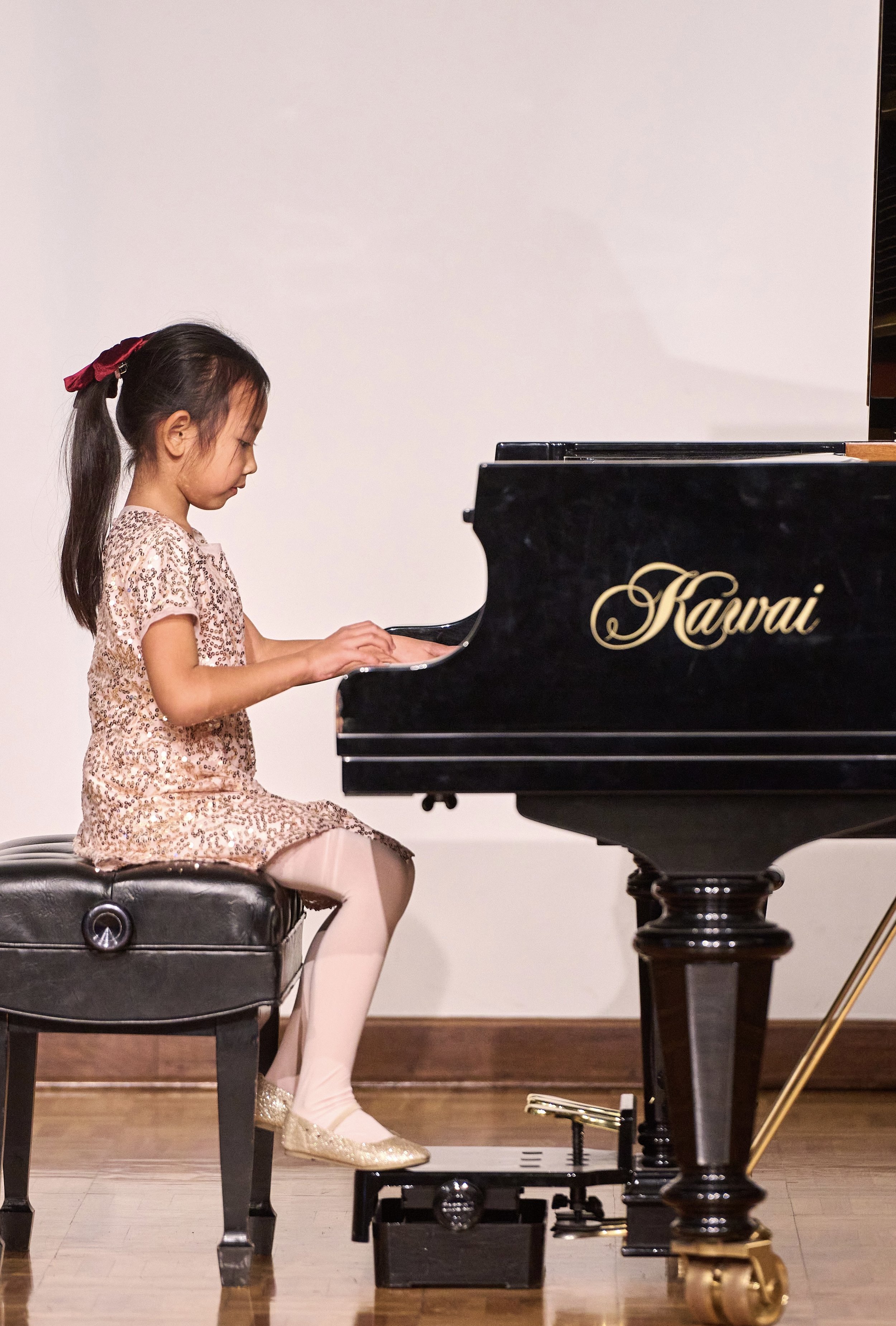What do you love most about teaching?
I love when I see students come in with a smile because at the end of the day, we are doing this for the joy.
1.How old were you when you started taking music lessons and what was your first instrument?
I started taking piano lessons at the age of 5, then transitioned to the cello at age 7.
2. Who/what inspired you to become a musician and music teacher?
I was very fortunate to have supporting parents who helped me continue my cello journey while growing up, and so they would have to be my inspiration to becoming the best musician I possibly can. My passion for teaching began while I was getting my undergraduate at the University of Washington. My professor at the time made me realize how important it was to have a good teacher from the very beginning. That being said, I had to relearn everything during my undergraduate studies with Saeunn who is a world class cellist, and could not have been any luckier to be under her guidance. I wish for no one to go through what I did and want to make sure I pass on the techniques I learned to the younger generation. I am grateful for all my teachers because I’ve learned many different things from each and everyone, and they would have to be my inspiration to become a teacher.
3. Who or what have been the most important influences on your musical life and career?
Attending concerts regularly growing up influenced me the most in my musical life, and it wasn’t until I first heard a cellist play a concerto for the first time with the symphony. That was the defining moment where I knew I wanted to continue playing the cello and taking music seriously. Now thanks to YouTube, I am able to look up legends such as Mstislav Rostropovich, Jacqueline du pre, Steven Isserlis, and many more.
4. Tell us about your musical and teaching background.
Since I started learning the cello at 7, my mom immediately signed me up for cello lessons and the Hawaii youth symphony, and was a part of a symphony since then, and also continued lessons ever since then. My first real student was when I was a sophomore in College because I knew I wanted to teach one day and wanted experience in teaching. Although I did not have many students, I’ve been teaching since then.
5. Do you have important ideas and concepts to impart to aspiring musicians?
Yes, I truly believe that good foundations from the beginning can come a long way and help enjoy playing the cello more. There is a misconception that you have to practice many hours every day but that is not true, the most important thing is consistency for me, and even 10 minutes a day is better than practicing 1 hour once a week and so I do try to drill that into my students. I also recommend going to concerts as much as you can because getting inspiration through others is really powerful.
6. What do you love most about teaching?
I love when I see students come in with a smile because at the end of the day, we are doing this for the joy. I want all my students to be excited for lessons rather than it being something they have to do because they are forced to.
7. Do you have a practice tip you want to share with our students?
Yes, warming up with scales early on I think is very important. Everyone knows this yet has a hard time doing this. I am guilty of this but when I started doing my scales every morning, playing my pieces was more enjoyable because it sounded better. The most important thing about doing scales is not to just play the notes, but carefully think about every detail possible because it is a lot harder to think about the details when the pieces start to get harder.
8. What do you enjoy doing when you’re not teaching, practicing, or performing?
Apart from teaching, practicing, or performing, I enjoy going out for a run and drinking coffee in the morning. Recently I’ve been learning how to golf because my whole family golfs, but I have long ways to go.
